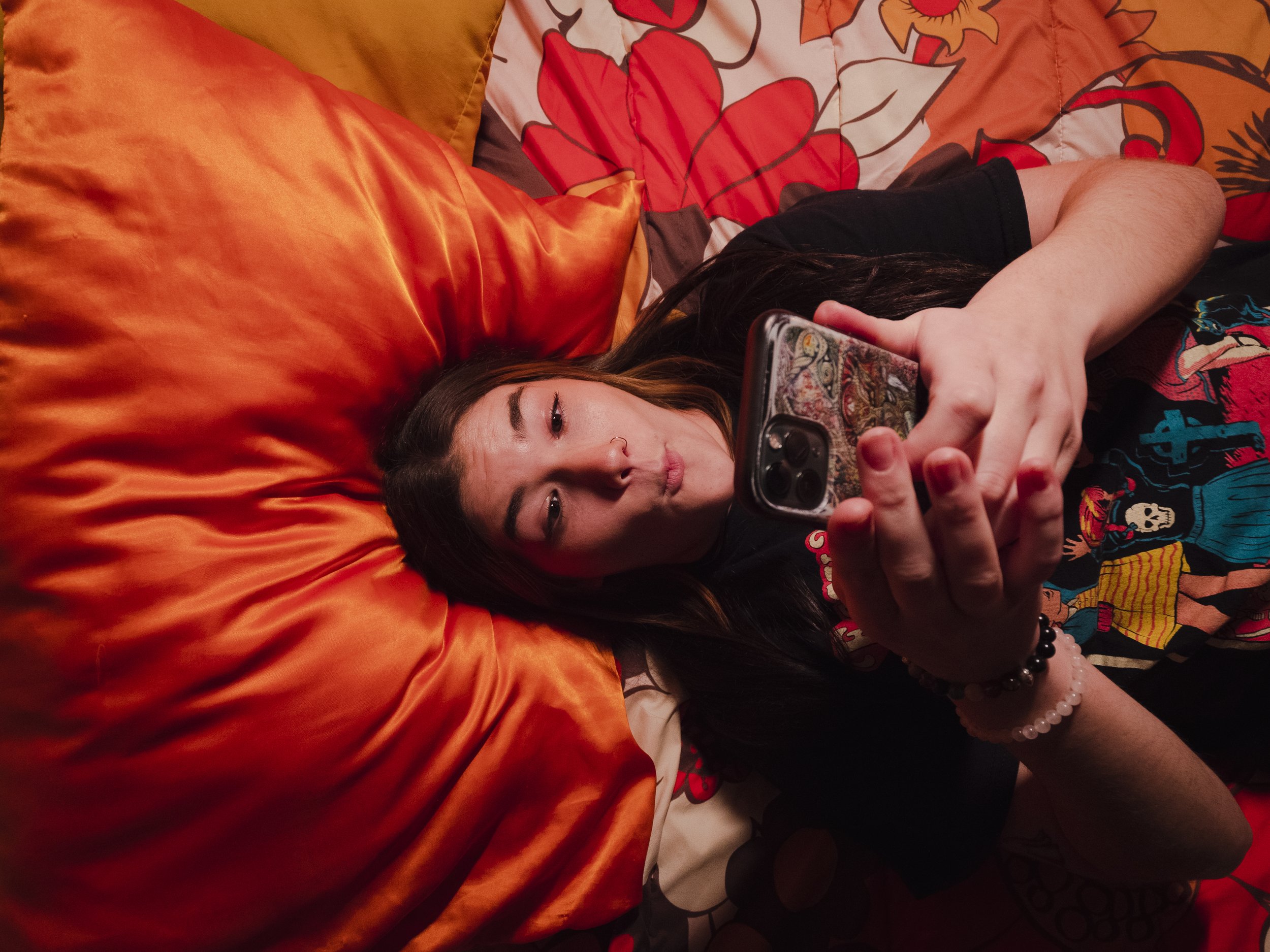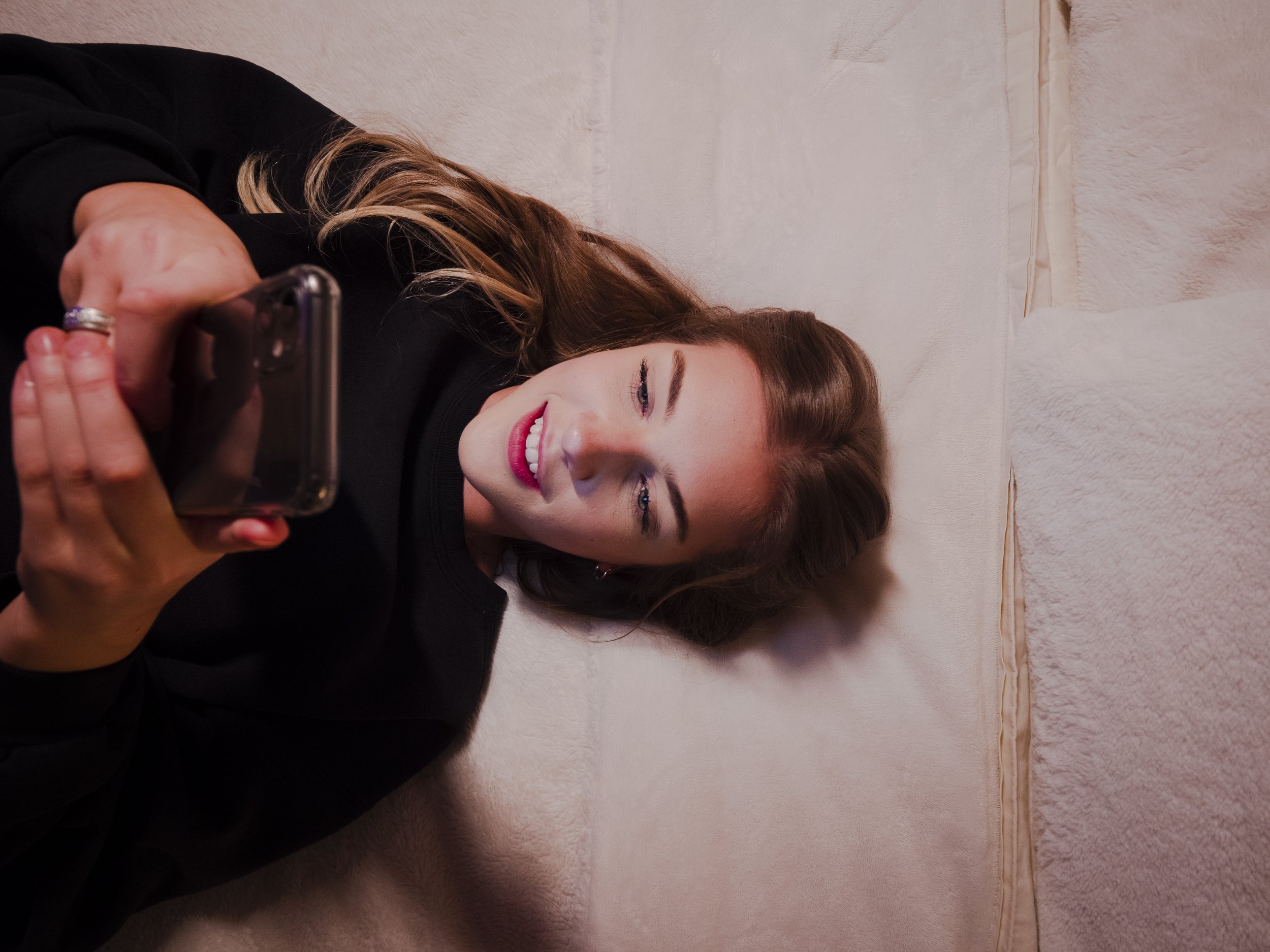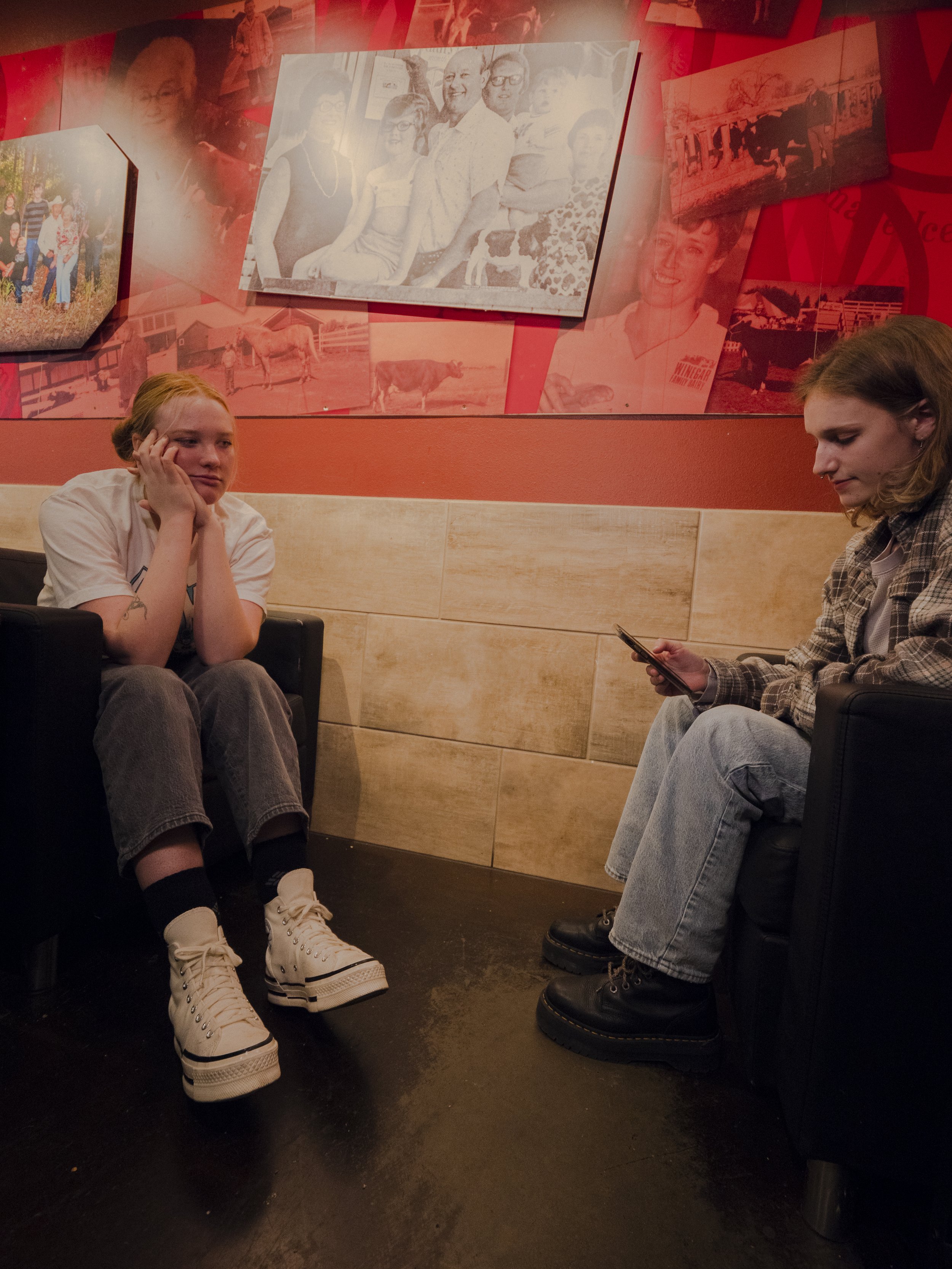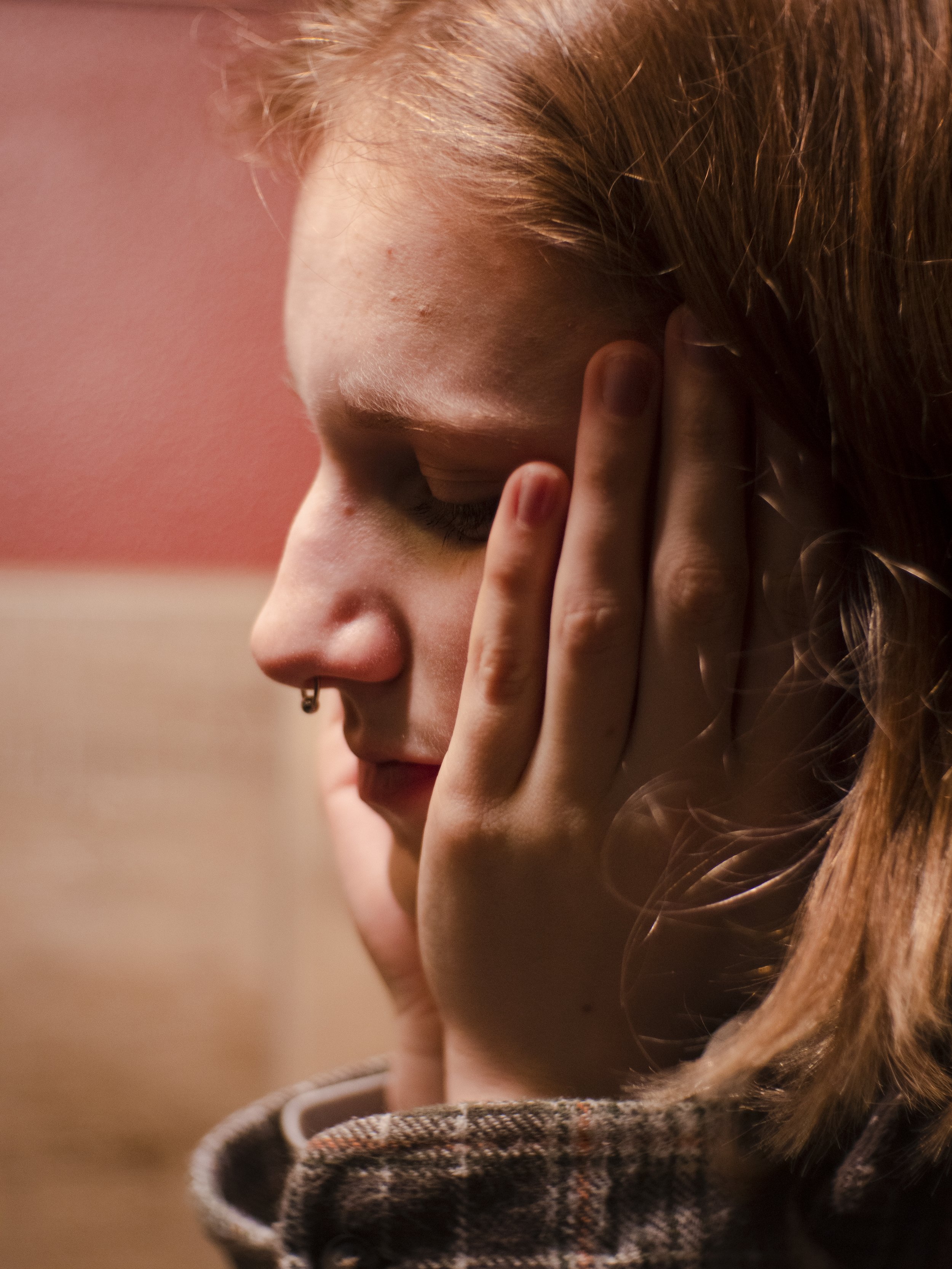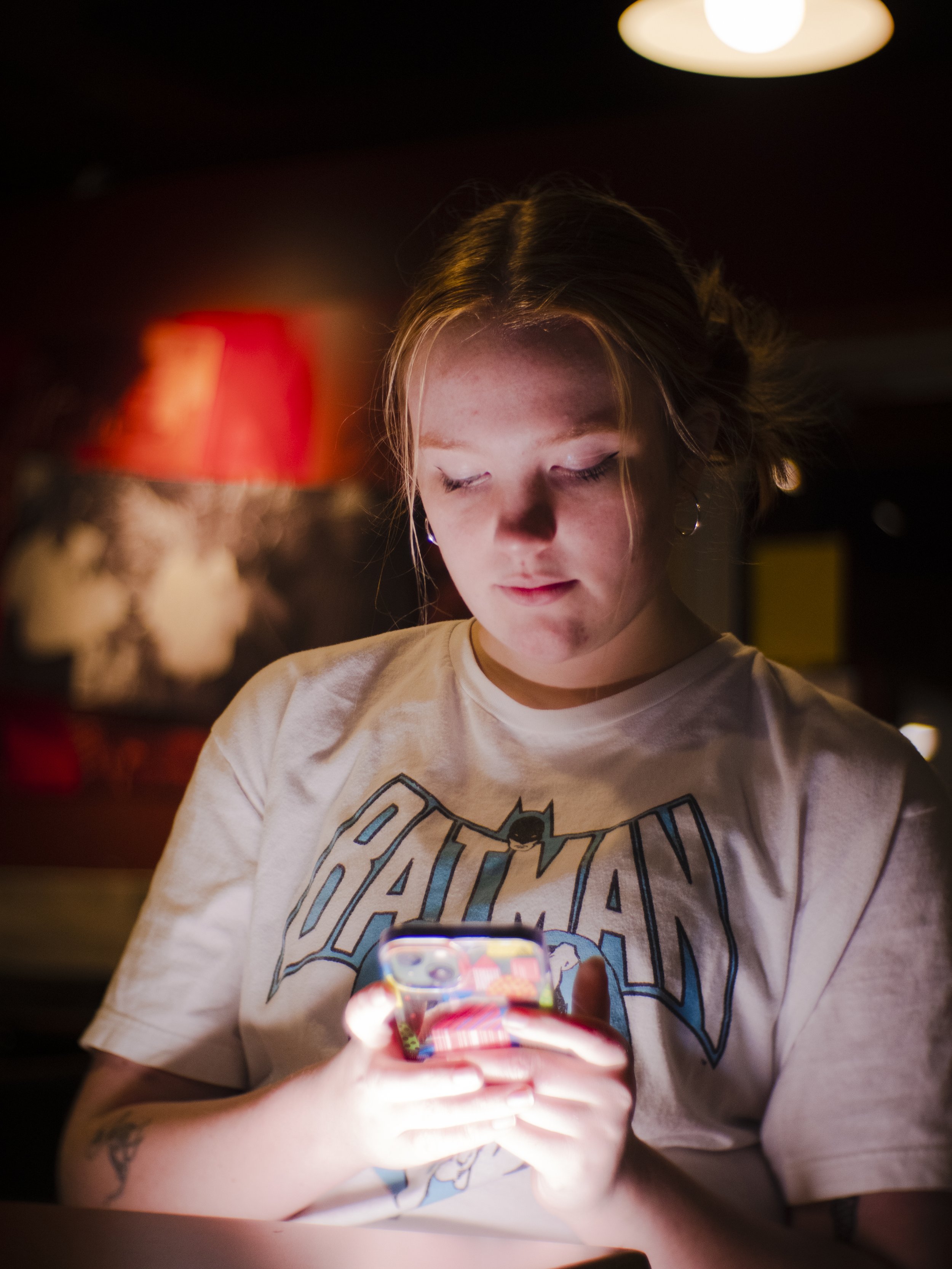Navigating Dating and Sexual Relationships
Story by Luca Goodhue | Design by Makayla Zayic | Photos by Dylan Hanson
Navigating Dating and Sexual Relationships
Swipe right here, swipe left there. Maybe a couple more swipe rights and a hope that you’ll match with someone. When you do, it’s a few days of awkward chatting until you meet up. Whether you swipe for a relationship or for a hookup, the dating scene at face value is the same: hoping for a match that you can get on with.
There is a difference in hooking-up and dating culture. With the introduction of dating apps, the game for both has changed. Students have different goals for each and have different ideas on how dating works.
Dating for the Modern world
Dating apps are similar to social media where you barely get to talk to anyone but still get to judge people based on looks. An anonymous surveyor replied to the question: how have dating apps changed the scene, "It’s almost like a new form of social media, but waaaayy more personal and interactive.”
Many people have experienced the situation where their roommate thinks that their best friend’s, boyfriend’s, roommates’ best friend would be a ‘perfect’ match for them.
Sophia Ferguson, a CWU alumni, says that she “honestly preferred using the apps” while she was at Central. Ferguson says her friends would try setting her up so she’d play nice and go to coffee but nothing ever clicked.
Ferguson says that apps have changed the dating world immensely. “I personally as a woman feel a lot safer because I feel like I can vet people, like background check people almost.”
Ferguson says that “in that aspect it’s kind of nice but I think it almost depersonalizes it a little bit...because you don’t have a chance to meet the human, you just have this like rundown baseball card worth of information about them and that’s how we make our decisions.”
Sella Brown, a freshman and computer science major, says that she prefers in-person dating.
“I feel like because you’re only seeing pictures of people, you kind of only see one side of them,” Brown explains.
Brown says that she finds it difficult to meet real people “that’s kind of hard to find a lot on online dating, where you meet somebody in person and you can actually see how they are and how they interact with everybody in the world.”
Ferguson says her most successful dating app was Hinge. “I hate Tinder, I tried Bumble but it’s been Hinge specifically that I felt I’ve honestly had just the best dates off of,” Ferguson explains. Ferguson states that the way Hinge has their app set up helps people show more of who they are.
Brown also didn’t have a lot of success using Tinder but she has found more success on Bumble.
“There were a lot more people on there but there was also, it felt like there were actual real people on there whereas Tinder it was either a real person or it was somebody that was a bot or a scam” Brown says. Bumble also has a feature called “Bumble friends' ' where you can meet new people and form non-romantic relationships.
Katie Parks, the health promotion coordinator for violence prevention and response at the Wellness Center says that “different dating apps might even have different insinuations about what someone might be looking for on Hinge versus Tinder versus on Bumble. And what it really comes down to is just being very open about what your intentions are, what you’re looking for. But that starts with knowing yourself what your relationship project is.”
A relationship project is what you want out of a relationship, is it long term, short term , something casual or is marriage the end goal.
Another thing to consider when figuring out your relationship project is do you and your potential partners gender and sexuality identities mesh well. If you’re a straight person, are you open to dating a gender non-conforming individual. Parks explains that “something else that has changed from previous generations to this one is better understanding of different sexualities and different gender identities.”
Tips for dating online
If you’re using a dating app, be unique. Don’t make your dating profile look like every other one out there. Have fun photos, things you enjoy doing, pictures of you and your friends and of course, your pets.
If someone is taking a while to decide to meet up, don’t be offended. Ferguson says that when she was dating, she would “talk to people for days or weeks before I met them.” She noticed that sometimes things would fizzle out before the date because she was cautious.
Unless agreed upon beforehand, don’t have an expectation of sex. Just enjoy the date and get to know your date and see where it goes. Try choosing a new activity and don’t rely on basic drinks or coffee.
Ferguson says “I love it if somebody is like ‘oh wait, I know this place nearby that I really want to show you.’” And again, don’t be offended if someone suggests a different activity than what you suggested.
Digits get the Digits
The Stable Marriage Problem is mainly to help heterosexual people find a stable marriage.
Jean Marie Linhart, chair of the mathematics department, explains that the stable marriage problem “was actually inspired by the question of college admissions.” It translates to marriages in the fact that you want to make sure there are no matches that would prefer to be with someone else.
Linhart says that it’s “a really simple algorithm for doing it and it very much is all of this old school patriarchal algorithm.”
Linhart explains that the women will stand out on their balconies and they will have a list of possible suitors that come and try to woo them. The women’s list is ranked on which of the men they like the best.
If one of the men that comes is first on her list, she accepts the proposal, making it so that the other women have less options. If none of the men are her favorite, she turns them away. The next day the same men will come to woo the same women, but now some of these women can no longer marry their first choice, so if their second choice is among her suitors she will accept his proposal.
This repeats over however many days it requires until each of the women have a proposal, with the men they chose getting further down their list as the days go on. The end result is that the men end up with their optimal spouse while women get their suboptimal spouse if they weren’t lucky enough to be chosen by their favorite candidate.
Linhart says that “we can prove that these marriages are stable so there’s no man and woman in this couple who are not married to each other who like each other better than the person that they’re actually married to.”
Linhart says that the marriage problem sends some good dating messages.
“If you’re trying to date, you don’t want to be passively allowing people to come to you. You really want to reach out to the people you’re attracted to and that really is the way to end up with the best match for you,” says Linhart .
She also says that another good lesson “from this algorithm is when somebody gets rejected, you’ve got to just walk away if you’re rejected, you just gotta go to the next person on your list.”
While the stable marriage problem may have been created under a patriarchal society, there are aspects that can be used in today’s society. Taking rejection well and not giving up if you are rejected.
Some dating apps seem to use the stable marriage algorithm. They may prompt you to keep swiping so it can figure out what you like. You can add filters like age, distance, gender you’re interested in, etc. On most apps you can upgrade to have more control over the filters.
Sex Lives of College Students
Part of hook-up culture is sex, and with that can come risks. June Bredin, medical director of student health, explains that the health center has all the same tests and medications you can get from your doctors should you ever need it.
If you’re in need of something, whether it be birth control of any kind or condoms or STI tests or health checks, they have it all available. Bredin says that “I think sometimes there are students that are afraid to come here because they think because there’s insurance stuff or my parents are going to find out.”
Bredin explains they only have a limited amount of things that they really bill to the insurance.
Bredin explains that they even have free Plan B, so you don’t have to spend money or travel to another city to get some.
“We get it from the health department and because it’s free of course that means that we don’t bill insurance,” says Bredin. And if you need a pregnancy test, you can make an appointment and ask for a nurse visit.
Doing that will keep it from being billed.
The Wellness Center has this thing called the “love glove club” where you can get 20 free condoms. If you’re nervous about getting condoms, this solution can help. You can order them online and pick them up the same day.
There is a limit of 20 free items per quarter. Arryn Welty said that the Wellness Center provides about 6,000 condoms a year to students and during fall quarter they provided about 1,550.
Katie Parks says that she sees “more cultural differences and differences between people who are having sex for different reasons.”
Parks called it ‘sexual projects’, in other words, the reason you’re having sex.
“Somebody’s sexual project might be to achieve a certain number of sexual partners or for physical pleasure or to have a child or to feel connected to another person, whether it’s a partner or not,” Parks explains.
Having open communication with your partners about your sexual project will help keep from hurting someone. Parks says if you are having sex, not having sex or wanting to have sex “spend some time figuring out…why.”
Some people don’t have good sexual communication skills since it’s an uncomfortable topic. Knowing what you want and communicating what you want with someone and making sure you’re on the same page with both your sexual projects and what you want out of a relationship.
Healthy Dating
Parks says that having a healthy relationship boils down to “having open, ongoing, regular communication with your partner because healthy relationships are built on a lot of things. They’re built on openness, honesty, vulnerability and their built on the understanding that the other person respects and honors what’s important to you.”
It all boils back down to communication and having trust with your partner.
Duane Dowd, the associate professor for child development and family studies, says that “dating apps have been very effective at facilitating changes that were already happening within the dating world”. You would still ask someone out, date for a bit and then state whether you are exclusive with each other.
Dowd says that with Generation Z, expectations have changed on the younger generation in terms of relationships and how they manage them. These “expectations include a delay of permanent relationship formation i.e. getting married or connected or a domestic partnership with somebody in the long term, it’s expected you’re going to do that later in life.”
This leads to Gen Z wanting to fill that gap before they settle down,if they choose to do so,with more casual type relationships.
Dowd says “Your romantic partnerships are not the only healthy relationships that you’re going to have and shouldn’t be the only healthy relationship you’re hoping to lean on.”
Knowing what you want out of a relationship is important. If you want just sex, a short-term relationship or you’re forever after, being true to yourself and having open communication with your partner(s) is important.

